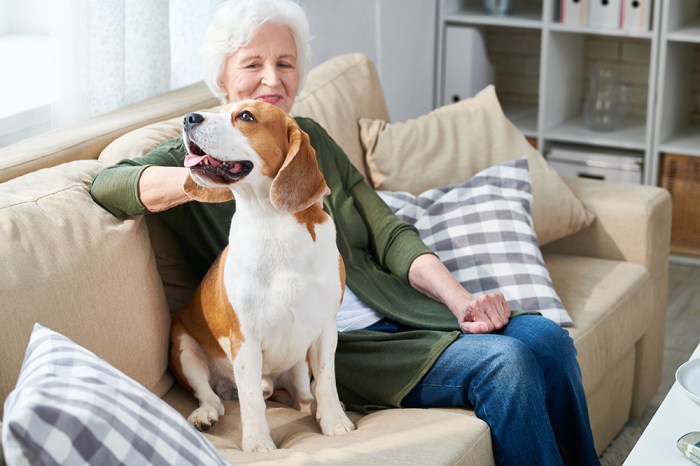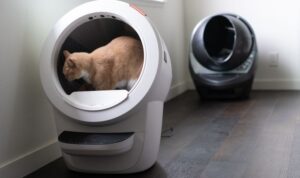Pet care advice for seniors: In this comprehensive guide, we delve into the importance of pets for seniors, choosing the right pet, pet care basics, and ensuring safety and well-being.
Importance of Pets for Seniors

Pets play a crucial role in the lives of seniors, providing numerous benefits that contribute to their overall well-being and quality of life. The emotional and physical advantages of owning a pet are invaluable, especially for older individuals who may face challenges such as isolation and limited social interactions.
Companionship and Emotional Support
Pets offer unconditional love and companionship to seniors, helping to alleviate feelings of loneliness and isolation. The presence of a furry friend can provide emotional support, reduce stress, and improve mental health. Seniors often develop deep bonds with their pets, creating a sense of purpose and companionship that enhances their emotional well-being.
Physical Health Benefits
Beyond emotional support, owning a pet can also have positive effects on seniors’ physical health. Taking care of a pet requires physical activity, such as walking a dog or playing with a cat, which can promote exercise and help seniors stay active. This increased physical activity can lead to improved cardiovascular health, lower blood pressure, and overall better physical well-being.
Sense of Responsibility and Routine
Having a pet can provide seniors with a sense of responsibility and routine, which can be particularly beneficial for those who may have fewer daily tasks or obligations. Caring for a pet involves feeding, grooming, and providing attention, creating a structured routine that can help seniors maintain a sense of purpose and structure in their daily lives.
Enhanced Social Connections
Pets can also serve as social catalysts, helping seniors connect with others in their community. Walking a dog, for example, can lead to interactions with neighbors or other pet owners, fostering new friendships and social connections. This increased social engagement can combat feelings of isolation and promote a sense of belonging and community among seniors.
Choosing the Right Pet: Pet Care Advice For Seniors

When it comes to choosing a pet for a senior, it is essential to consider factors that match their lifestyle and abilities. This includes factors like size, temperament, and maintenance requirements of the pet.
Matching Size and Activity Level
Seniors should consider their physical capabilities and living space when choosing a pet. Smaller pets like cats or small dogs may be more manageable for seniors with limited mobility or living in smaller homes. Additionally, seniors with an active lifestyle may prefer a more energetic pet that requires regular exercise.
Temperament and Compatibility, Pet care advice for seniors
It is crucial to choose a pet with a temperament that aligns with the senior’s personality and preferences. Some seniors may prefer a calm and affectionate companion, while others may enjoy the playful nature of a pet that requires more interaction. Compatibility between the senior and the pet is key to building a strong bond.
Maintenance and Care
Seniors should consider the maintenance and care requirements of different pets before making a decision. Some pets may require regular grooming, veterinary care, or specific dietary needs. It is essential to choose a pet that the senior can comfortably care for without feeling overwhelmed.
Adopting Older Pets vs. Getting a Puppy or Kitten
While puppies and kittens are adorable, adopting an older pet may be a better fit for seniors. Older pets are often calmer, trained, and may require less intensive care compared to younger animals. Additionally, giving an older pet a loving home can be incredibly rewarding for both the senior and the pet.
Pet Care Basics

Pets require consistent care to ensure their health and well-being, especially for seniors who may need extra support. Establishing a routine for pet care can help seniors maintain a sense of purpose and companionship. Providing a comfortable living environment is essential for both the pet and the senior.
Feeding
- Provide a balanced diet suitable for your pet’s age and health needs.
- Ensure access to fresh water at all times.
- Follow feeding guidelines recommended by your veterinarian.
Grooming
- Regularly brush your pet’s fur to prevent matting and reduce shedding.
- Trim your pet’s nails to maintain their comfort and mobility.
- Keep your pet clean by bathing them when necessary.
Exercise
- Engage your pet in regular physical activity to promote their overall health.
- Take your pet for daily walks or play interactive games indoors.
- Consult with your veterinarian to determine the appropriate exercise routine for your pet.
Veterinary Care
- Schedule regular check-ups with a veterinarian to monitor your pet’s health.
- Stay up-to-date on vaccinations and preventive care recommended by your veterinarian.
- Address any health concerns promptly to ensure early intervention and treatment.
Creating a Comfortable Living Environment
- Designate a cozy space for your pet with bedding and toys.
- Ensure a safe environment free of hazards or toxic substances.
- Provide mental stimulation through interactive toys and activities.
Ensuring Safety and Well-being

When it comes to pet care for seniors, ensuring the safety and well-being of both the pet and the senior is crucial. Here are some tips to help maintain a safe and healthy environment for the pet:
Pet-Proofing the Home
It’s essential to pet-proof the home to prevent accidents and ensure the pet’s safety. This can include securing loose wires, keeping toxic plants out of reach, and removing any small objects that could be swallowed.
Regular Veterinary Check-ups and Vaccinations
Scheduling regular veterinary check-ups and ensuring that your pet is up-to-date on vaccinations is vital for their health and well-being. These visits can help catch any potential health issues early and ensure that your pet is healthy and happy.
Handling Emergencies and Unexpected Situations
It’s important to be prepared for emergencies or unexpected situations involving your pet. Make sure you have a list of emergency contacts, including your veterinarian, and know where the nearest emergency veterinary clinic is located. Additionally, having a pet first aid kit on hand can be helpful in case of minor injuries or emergencies.
Final Thoughts

To wrap it up, ensuring proper pet care for seniors is not only rewarding for the pets but also beneficial for the well-being of the seniors themselves. By following these guidelines, seniors can enjoy the companionship and joy that pets bring into their lives.
When it comes to online branding digital marketing approach , it is crucial to develop a strong online presence that reflects your brand identity. Utilizing social media platforms, SEO strategies, and content marketing can help establish brand awareness and credibility in the digital space.
By creating engaging and relevant content, businesses can connect with their target audience and drive traffic to their website, ultimately leading to increased sales and growth.
When it comes to online branding digital marketing approach, businesses need to focus on building a strong digital presence to stand out in the competitive online landscape. Utilizing social media platforms, search engine optimization, and content marketing strategies are essential in creating brand awareness and reaching target audiences.
By implementing a comprehensive digital marketing approach, companies can effectively engage with customers and drive business growth. Learn more about online branding digital marketing approach here.
- Pet grooming tips for dogs: Essential advice for keeping your furry friend clean and healthy - January 7, 2025
- How to groom your pet: A Comprehensive Guide - January 6, 2025
- Pet care advice for seniors: Keeping your furry friends happy and healthy - January 5, 2025







